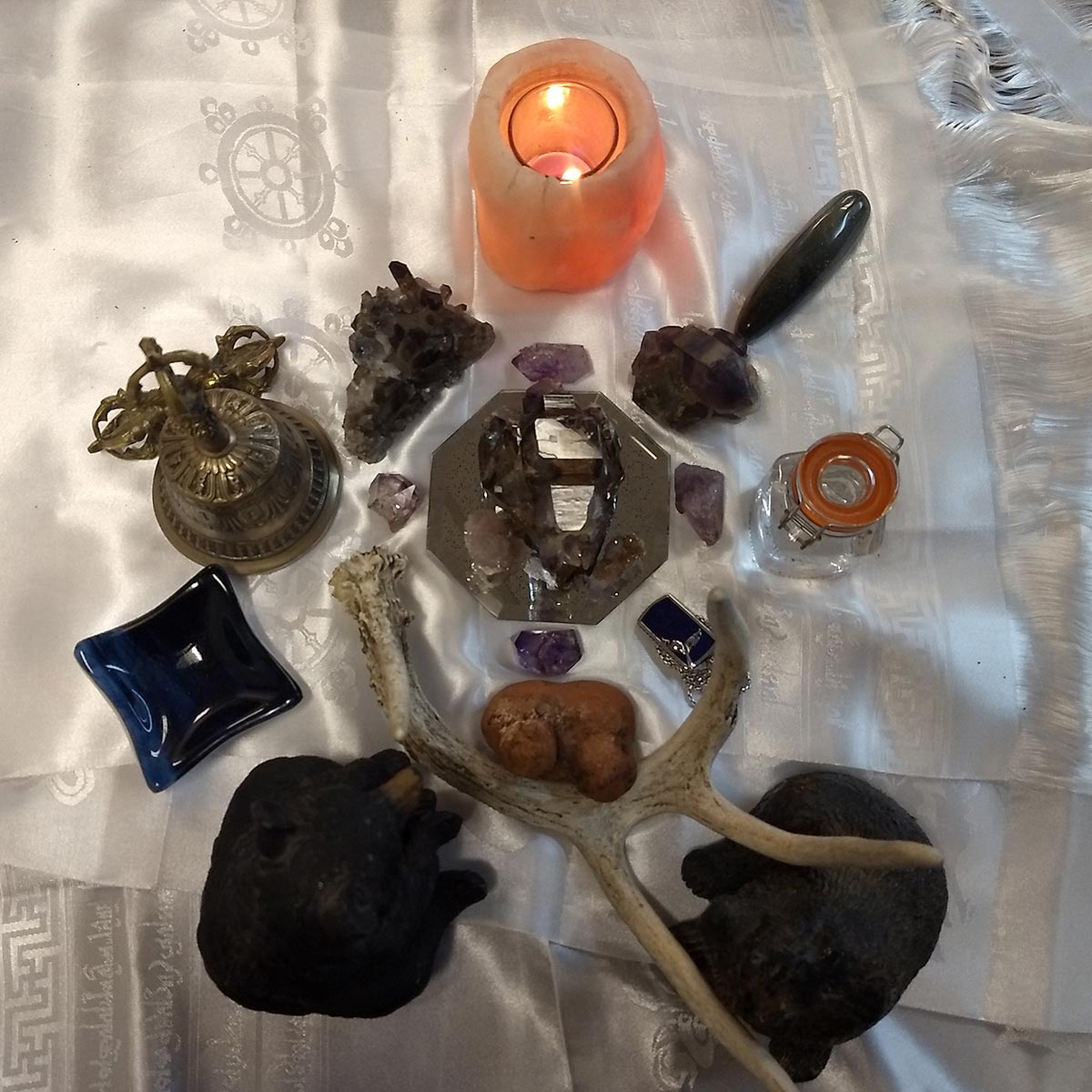In my journey of relationship coaching and counseling, I have often stumbled upon a recurring question from numerous clients: “Why am I unhappy in my relationship?” This question, while appearing simple at first glance, carries within it deep layers of complexity that reflect the intricate nature of human relationships. Let’s delve deeper into this issue, exploring its many facets.
Contents
At the heart of a fulfilling relationship lies a blend of love, respect, trust, and mutual understanding. But beyond these fundamental elements, there are other, often overlooked aspects that can add depth to your bond, making it more satisfying and meaningful.
Lack of Communication: How Not Talking Can Be a Relationship Killer
It’s been my experience, both personal and professional, that the very core of any relationship is communication. Without it, the relationship is akin to a car without an engine – it simply won’t go anywhere. But, let’s delve a bit deeper into that analogy. Even a car with an engine won’t move if the driver doesn’t know how to operate it. Similarly, merely communicating isn’t enough; it’s how we communicate that truly matters.
Understanding Communication In Relationships
Now, you may be thinking: “I talk to my partner all the time, so how can lack of communication be a problem in my relationship?” Well, the answer to that lies in understanding what effective communication in a relationship actually entails. It’s not just about talking; it’s about expressing your feelings, understanding your partner’s perspective, and solving differences constructively. It’s about making your partner feel valued and heard.
Communication is not just about exchanging information; it’s about understanding the emotion and intentions behind the information.
~Peter Drucker
The Consequences of Poor Communication
When communication is lacking or ineffective, it breeds a host of issues within a relationship. These range from misunderstandings and trust issues, to resentment and emotional distance. When we don’t communicate our needs and feelings, it creates a gap that is often filled by assumptions and misinterpretations. And believe me, this is a destructive path.
- Misunderstandings: When we don’t articulate our thoughts and feelings clearly, it leaves room for misinterpretation, leading to unnecessary conflicts.
- Trust issues: Lack of open and honest communication can erode trust. When expectations aren’t communicated, it often leads to disappointments and broken trust.
- Resentment: When feelings and issues aren’t discussed, they build up over time, leading to resentment.
- Emotional distance: Poor communication can lead to emotional disconnect. When we don’t share our thoughts and feelings, we inadvertently push our partner away.
Improving Communication in Your Relationship
So, how do you bridge this communication gap in your relationship? Here are some practical steps you can take:
- Practice active listening: When your partner is speaking, give them your full attention. Don’t just hear the words; try to understand the feelings and intentions behind them.
- Express yourself clearly: Be open about your feelings, needs, and expectations. Use “I” statements to express how you feel without blaming or criticizing your partner.
- Be open to feedback: Be willing to listen to your partner’s perspective, even if it’s uncomfortable. Constructive criticism is a crucial part of communication.
- Resolve conflicts constructively: When disagreements arise, address them directly and respectfully. Avoiding or suppressing conflicts only leads to resentment.
I believe that communication is the lifeblood of a relationship. It’s not always easy, but with patience, practice, and a genuine desire to understand and be understood by your partner, you can overcome this hurdle and build a fulfilling relationship.
Different Life Goals: When You and Your Partner Are Not on the Same Page
Reflect for a moment on your relationship. Have you ever noticed a sense of dissatisfaction, an unfulfilled longing, or perhaps a nagging void? This could potentially be attributed to different life goals between you and your partner. As a relationship coach and counselor, I strongly believe that common life goals act as the foundation upon which fruitful relationships are built. When you and your partner are not on the same page, the relationship may feel like a boat sailing against the current.
My experience in counseling couples has often shown me that when partners have divergent life goals, it becomes increasingly challenging to navigate the turbulent waters of a relationship. This is because, in essence, you’re attempting to walk on two distinctly different paths, which can invariably lead to dissatisfaction and unfulfillment.
So, what happens when you and your partner have different life goals? Let’s delve into this with a detailed exploration.
Effects of Divergent Life Goals on a Relationship
- Discontentment: The most immediate impact of divergent life goals is a pervasive sense of discontentment. You might find yourself often questioning the relationship and its direction.
- Resentment: Over time, this discontentment can morph into resentment, especially if one partner feels they have to compromise their goals for the sake of the relationship.
- Incompatibility: Divergent life goals can also lead to an increased sense of incompatibility. The lack of shared ambitions and visions can eventually make the relationship feel strained.
I believe that understanding these effects is the first step towards addressing the issue. But what’s next? How do we work towards aligning our life goals with those of our partners?
Moving Towards Alignment
While it might seem daunting, aligning goals in a relationship is not an insurmountable task. In fact, it might be easier than you think. It begins with open and honest communication, followed by understanding and compromise.
- Open and Honest Communication: Start by talking about your individual goals, dreams, and ambitions. Be honest and unreserved, but also be open to listen to your partner’s aspirations.
- Understanding: Once you’ve laid your cards on the table, try to understand your partner’s perspective. Remember, this is not about winning or losing, it’s about reaching a mutual understanding.
- Compromise: After understanding each other’s goals, you might need to make some compromises. But remember, compromise does not mean giving up on your dreams. It’s about finding a middle ground where both of you can grow and prosper.
Divergent life goals can indeed cause a sense of unfulfillment in a relationship. However, through open communication, understanding, and compromise, you and your partner can overcome this challenge and build a relationship that is both satisfying and fulfilling.
Trust: The Foundation of Every Relationship
In my personal experience and teachings, trust is often considered the cornerstone of any relationship. When this foundation is shaky or non-existent, the entire structure of the relationship is likely to crumble. It’s like building a house on a weak foundation; no matter how beautifully you decorate the interior or how robustly you build the walls, a single storm (or in the case of a relationship, a single conflict or misunderstanding) can cause everything to come crashing down.
So, what does it mean to trust? Essentially, it involves believing that your partner will respect and honor you, your feelings, and your relationship. This trust is not to be confused with blind faith or naivety. Rather, it is a deep-seated belief that your partner will act in your best interest and be truthful.
Cultivating Trust
Now, the question arises, how does one cultivate this crucial trust in a relationship? Based on my extensive research and personal observations, several factors contribute to the development and maintenance of trust. These include communication, transparency, honesty, and consistency.
- Communication: Partners need to communicate openly and honestly about their feelings, thoughts, and concerns. This doesn’t mean you have to share every little thought or feeling, but rather the significant ones that impact your relationship.
- Transparency: There should be no hidden agendas or secrets that could potentially harm the relationship. This doesn’t mean you can’t have personal space or private thoughts, but anything that directly affects the relationship should be transparent.
- Honesty: This goes hand in hand with transparency. Honesty builds trust because it shows that you respect your partner enough to be truthful, even when it is difficult.
- Consistency: Trust is built over time through consistent behavior. If your words and actions align consistently, your partner is likely to trust you.
Understanding these factors is one thing, but implementing them in your relationship is another. It requires conscious efforts from both partners. When the trust in your relationship is lacking, it can be restored with patience, consistent efforts, and time. Trust isn’t built overnight; it grows gradually as you and your partner continue to act in ways that build confidence and belief in each other.
Repairing Trust
Now, you might wonder, “What if the trust in my relationship has been broken? Can it be rebuilt?” The answer is yes, but it requires a great deal of work and dedication from both parties. Just like a shattered vase, a broken trust can be mended, but it will never look exactly the same. The cracks will always be there, serving as reminders of past mistakes. However, if both partners are committed, these cracks can become symbols of resilience and strength. The process of rebuilding trust involves sincere apologies, forgiveness, and most importantly, actions that show change.
It’s important to know that trust is negotiable and fluid. I often meet people who treat trust as a binary concept; it’s either on or off, there or not there. In order to repair trust, you have to treat it as a gradient, an amount. For instance, you may have someone whom you know is an excellent driver. You may not think twice about letting them use your car for a week. There may be someone else that you might let them take the car to the store and back, but most certainly not anything more than that.
The person that you wouldn’t let take the car for longer periods may either have lost your trust, or not earned it yet. In either case, the amount of trust you have for them can change depending on certain factors. In this case, trust is negotiable, and you know where you stand by complete examination and self reflection.
Jealousy and Possessiveness: The Fine Line Between Love and Control
In my extensive experience as a relationship consultant, I’ve observed that one of the most intricate, yet destructive forces that can make a relationship unfulfilling is jealousy and possessiveness. These elements, although seemingly benign in moderation, can easily tip the balance from love to control, essentially eroding the foundation of trust and mutual respect upon which a relationship is built.
Jealousy, while often dismissed as a simple emotional reaction, is a highly complex emotion that can be spurred by a multitude of factors (such as insecurity, fear of loss, or lack of self-esteem). When left unchecked, this potent emotion can lead to controlling behavior in an attempt to alleviate the perceived threat. Possessiveness, on the other hand, stems from an excessive desire to maintain control over a partner, often masking deep-seated fears of abandonment or rejection.
These attributes, despite their destructive potential, are not always immediately recognizable. This is due to their ability to masquerade as expressions of profound love or concern. However, it’s essential to understand the difference between a protective partner and a possessive one. I often tell my clients that healthy relationships are about companionship and mutual growth, not ownership and control. It’s the fine line between these concepts that often gets blurred, leading to the feelings of unfulfillment.
“The line between love and control can often become blurred, leading to a relationship marred by jealousy and possessiveness.”
Signs of Jealousy
To help you identify and address these issues, I’ve compiled a list of some of the most common signs of jealousy and possessiveness:
- Excessive control: Your partner constantly asks about your whereabouts, monitors your interactions, or dictates your schedule.
- Lack of trust: Despite your consistent transparency, you are frequently accused of dishonesty or infidelity.
- Insecurity: Your partner often compares themselves to others, questions your love, or seeks constant reassurance.
- Isolation: Your partner discourages or prevents you from spending time with friends, family, or hobbies that don’t include them.
Addressing jealousy and possessiveness requires open communication, mutual understanding, and often professional guidance. It’s crucial not to dismiss your feelings or tolerate disrespectful behavior. Instead, express your concerns, establish clear boundaries, and seek help if necessary. Remember, it’s your right to feel safe and respected in your relationship.
Lastly, I want to emphasize that experiencing jealousy or possessiveness does not signify a lack of love. They are often manifestations of deep personal issues that require addressing. The key is not to let these emotions dictate your relationship but to use them as a catalyst for personal growth and positive change.
Lack of Intimacy: The Importance of Physical and Emotional Connection
In my years of professional experience and personal exploration, I have come to understand that a profound lack of intimacy is one of the most common issues that can render a relationship unfulfilling. Intimacy, in this context, is not limited to the physical aspect (though it is undeniably vital), but also extends to emotional connection, which forms the bedrock of any relationship.
True intimacy is the sharing of one’s most personal self, the deepest fears, the wildest dreams, the unspoken thoughts, and the untamed emotions. It is a profound connection that transcends superficial interactions and dives into the core of an individual’s essence. When this connection is missing, the relationship can feel hollow and unsatisfying, like an echo chamber devoid of resonance.
When we talk about physical intimacy, we’re not talking exclusively about sexual intimacy (though that’s a significant component). We’re also referring to the simple touches, the shared glances, and the comforting presence of your partner. This lack of closeness can often feel like a vast chasm, separating you from your partner, and leaving you feeling isolated, even when they’re right beside you.
Remember, physical intimacy is about more than just sex. It’s about being comfortable in each other’s space, knowing when to reach out for a comforting touch, and recognizing the love in those small gestures.
Emotional Intimacy
On the other hand, emotional intimacy is about being able to share your innermost thoughts and feelings. When this is missing, it creates a sense of disconnect. You may live with your partner, laugh with them, even share a bed, but without emotional intimacy, there will always be a wall between you. It’s like living with a stranger, someone you know very well but don’t quite understand.
So, how can you bridge this distance, build the intimacy that’s missing from your relationship? Here are a few strategies I personally believe can make a significant difference:
- Open Communication: Honest and open communication is foundational to intimacy. Share your thoughts, express your feelings, and most importantly, listen when your partner does the same. It’s a two-way process that can help build trust and understanding.
- Quality Time: Spend time together, doing things you both enjoy. Shared experiences can foster a deeper connection and create cherished memories.
- Nurturing Touch: Sometimes, a simple touch can say what words can’t. A hug, a hand on the shoulder, or just holding hands, these gestures can help bridge the distance and create a sense of closeness.
- Understanding and Patience: Building intimacy takes time and patience. Try to understand your partner’s perspective, be patient with them, and give them the space to express themselves.
Intimacy is a journey, not a destination. It’s about continuously working together, growing together, and deepening the connection. And remember, it’s never too late to start. It’s always possible to cultivate intimacy, to bridge the gap, and to make your relationship more fulfilling.
Communication Style
It’s important to understand yours and your partner’s communication style, and equally important to understand the masculine and feminine styles that drive things like sexuality and relationship priorities. This is something that can be more deeply understood with the help of astrology. If you’re doubtful, let me assure you that true natal astrology can be one of the most eye opening experiences you’ll ever have. Read, “Soul’s Purpose Astrology“. If you’d like to consult with me about doing a Soul’s Purpose Natal Chart, create a consultation on my calendar.
Infidelity: When Trust Is Broken
Let’s dive into a major obstacle that often stands in the way of fulfilling relationships: infidelity. In my teachings and experiences, I’ve come to understand that infidelity, in essence, is a breach of trust – one of the key pillars upon which a healthy relationship is built. When this trust is broken, it instigates a cascade of negative emotions, including betrayal, hurt, anger, and confusion that can be difficult to overcome.
The act of infidelity itself is not always about the physical or emotional affair but about the deceit that follows. The partner who has been unfaithful creates a shroud of secrecy that obscures the truth and betrays the trust, making it a challenge to repair what has been broken.
“It’s the lies and deceit that accompany infidelity that cause the most damage.”
Infidelity can have severe consequences on a relationship. The aftermath varies from person to person, but certain impacts are common across the board. For instance, the partner who was cheated on often experiences a significant blow to their self-esteem, feelings of inadequacy, or even symptoms of post-traumatic stress disorder (PTSD). On the other hand, the unfaithful partner may deal with guilt, regret, or fear of losing the relationship.
Understanding the Reasons Behind Infidelity
Understanding the reasons why people cheat can be a step in the right direction towards healing. It’s essential to note that the reasons for infidelity are complex and varied, and are often rooted in unresolved issues, either within the person or within the relationship.
- Emotional dissatisfaction: Often, individuals engage in an affair because they feel emotionally unsatisfied in their current relationship. This dissatisfaction might stem from feeling neglected, unappreciated, or disconnected from their partner.
- Seeking variety: Some individuals may seek variety and novelty, whether in their personal lives or sexual experiences. This desire might lead them to defy the boundaries of a committed relationship.
- Escaping problems: At times, infidelity can be a way of dealing with personal problems, such as depression, anxiety, or a midlife crisis. Instead of addressing these issues, some might choose an affair as a diversion.
- Sexual dissatisfaction: It’s not uncommon for sexual intimacy to decline in a relationship. This can be due to health problems, lack of inclination for various reasons, age, or life events.
It’s important to remember that these reasons are not justifications for infidelity, but understanding them can help in the process of healing and rebuilding trust.
Steps to Rebuild Trust After Infidelity
Rebuilding trust after infidelity is a challenging process, but it’s not impossible. Here are some steps that can be taken to mend the damage:
- Honesty: The unfaithful partner must be completely honest about the affair. This includes being open about what happened, why it happened, and how they plan to prevent it from happening again.
- Patience: The healing process takes time. It’s crucial for both partners to understand that trust won’t be restored overnight. The betrayed partner needs time to process their feelings and emotions.
- Seeking professional help: Sometimes, it’s beneficial to seek the help of a relationship counselor or therapist. They can provide the necessary tools and strategies to navigate through the healing process.
Enduring an affair is undoubtedly a painful experience, but it’s essential to remember that it’s possible to rebuild the trust that has been lost. It takes time, patience, and a lot of hard work, but with the right approach and commitment, relationships can emerge stronger from the ashes of infidelity.
For a more in-depth article on whether to seek restoration or move, see “Is Change Ending Your Relationship? How to Figure It Out.”
Growing Apart: How to Reconnect with Your Partner
As we navigate the labyrinth of life, it’s not uncommon for couples to drift apart. This divergence doesn’t occur overnight, rather, it’s a gradual process that often goes unnoticed until the gap becomes a yawning chasm. The good news, however, is that all is not lost. Restoring the connection is entirely possible, and the following insights may aid in bridging the divide.
Understanding the Problem
The first step in remedying any issue is acknowledging its existence and understanding its nature. In a relationship, growing apart frequently stems from a lack of communication, shared interests, or quality time spent together. (It’s important to note that these factors are not exhaustive and the root cause may vary from couple to couple.)
Communication is Key
Communication, or the lack thereof, is often the cornerstone of many relationship issues. Couples who no longer communicate effectively are akin to two ships passing in the night, each unaware of the other’s course. To reignite the connection, it’s indispensable to foster open and honest communication. This not only involves expressing one’s feelings and concerns, but also actively listening to your partner’s views. (I cannot stress this point enough. Listening, as opposed to merely hearing, is a potent tool for understanding and empathy.)
Shared Interests
Shared interests play a vital role in strengthening the bond between partners. They provide a common ground – a platform for shared experiences, memories, and mutual enjoyment. When couples drift apart, these shared interests often fall by the wayside. (Remember, it’s never too late to rediscover old interests or cultivate new ones together.)
Quality Time
Quality time is a building block of any relationship. It’s during these moments that connections are forged and bonds are reinforced. In the hustle and bustle of modern life, couples often forget to allocate time for each other. This absence of quality time can lead to a feeling of disconnect. (I strongly believe that cultivating ‘couple time’ can do wonders to rekindle the flame in your relationship.)
“Connection is the energy that is created between people when they feel seen, heard, and valued; when they can give and receive without judgment.”
~Brené Brown
Reconnecting Requires Effort
Reconnection doesn’t occur in the blink of an eye. It requires effort, patience, and persistence. It’s a journey, similar to the one you embarked upon when you first fell in love. (This journey, though arduous, is worth every step. The reward is a revitalized relationship marked by love, understanding, and mutual respect.)
Growing apart is not a death sentence for a relationship. On the contrary, it can serve as a wake-up call – an opportunity to reassess and rekindle the bond you share with your partner. So, don’t hesitate to take the first step. It may be daunting, but remember, the journey of a thousand miles begins with a single step.
When Karma Is What’s Holding the Relationship Together
When we delve into the realm of karma and its impact on romantic relationships, it’s crucial to fully grasp the essence of this ancient concept. Karma, in its most basic sense, refers to the spiritual principle of cause and effect (or more colloquially, what goes around comes around). It’s a pivotal concept in various eastern religions, including Hinduism and Buddhism. The principle suggests that the universe is inherently just, and that our actions, good or bad, ultimately come back to us. In a relationship context, karma implies that the ways we act towards our partner will, sooner or later, be reflected back onto us.
Unfortunately, in some instances, the concept of karma is misinterpreted and misapplied, turning into a detrimental crutch in relationships. This misapplication often results in a false sense of security or an excuse for not addressing fundamental issues.
If you feel that your relationship is primarily held together by the belief that ‘karma will sort it out,’ it’s time to pause and assess.
Karmic Debt
In such cases, the relationship could be fulfilling a karmic debt rather than being a source of mutual love, respect, and growth. You may be clinging to a relationship not because it’s healthy or fulfilling, but because you believe that enduring it is your karmic duty. This belief can be limiting and confining, preventing you from seeking a relationship that genuinely enriches your life.
Here are a few signs that karma might be holding your relationship together:
- Your relationship consists of patterns that repeat themselves, despite your attempts to change them.
- You feel obligated to stay in the relationship, even though it’s unfulfilling.
- There is a disproportionate balance of give and take between you and your partner.
- There’s a strong sense of familiarity or deja vu in your relationship.
If these signs resonate with you, it may be time to reassess your relationship’s foundation. Instead of relying solely on the concept of karma to maintain your relationship, focus on nurturing mutual respect, love, understanding, and open communication. There’s no denying that karma plays a role in our lives, but it mustn’t substitute fundamental building blocks of a healthy, fulfilling relationship.
Remember, leaving an unsatisfying relationship doesn’t mean you’re avoiding karmic responsibility. Sometimes, it’s the most karmically responsible thing you can do. It can be the first step towards personal growth and finding a relationship that truly enriches your life.
Past Lives and Relationship Karma
Sometimes karma is an ongoing lesson being learned between two or more people in a relationship and in a family. People in the same soul group tend to reincarnate together in order to gain a different perspective on a topic that they’re learning together from different points of view.
I often use the example of forgiveness to illustrate this point. A victim needs and perpetrator, and vice versa. In order to understand how to forgive, you also have to understand how to be forgiven. You also need to learn to forgive yourself. It may take lifetimes to be able to experience each of the different positions that one must have in order to get the perspective of the victim, the perspective of the perpetrator, and be able to fully move into the state of forgiveness itself.
Two or more people may incarnate together in order have the shared experience of moving through the stages of forgiveness, each holding their position and having the opportunity to learn through that position’s perspective.
In Conclusion
An intimate relationship can be the most important venture you’ll undertake in life because the opportunities for personal growth are immense. Like all things that initiate this potential for growth, relationships are accompanied by challenges, uncertainty, and require effort. The rewards however, are incomparable, and worth every minute that you devote.
If you’re interested in learning more about past lives and how to bring awareness to this current incarnation and the lessons you’re hear to learn, read “What is Past Life Regression and How Does It Work?“. If you’d like to consult with me about doing a Past Life Regression, create a consultation on my calendar.











